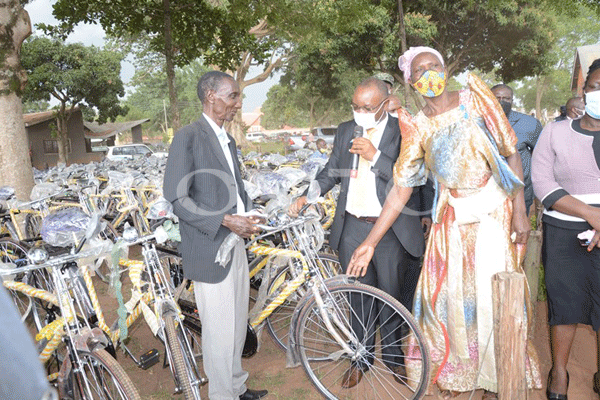Prime
Where does the buck of anti-corruption stop?

Author, Augustine Bahemuka. PHOTO/FILE/COURTESY
What you need to know:
As a country, we commemorated Anti-Corruption week which included activities to raise awareness among the masses against the vice of stealing public funds and its impact on our economy and public service delivery
Bishop Fulton Sheen was an eloquent and inspirational Catholic preacher whose writings are still as relevant today they were in the 19th Century. “Speak of evil in its true terms” he writes, “and you rob it of half its seductiveness”. We could then boldly refer to corruption as theft and all corrupt people – thieves. There is no doubt that corruption is such a critical social problem that has bedeviled our society. However, it also seems that the more we speak about it, the more it thrives! Could it be because of the terminologies that are usually used in relation to corruption – embezzlement, misappropriation, mismanagement, bribery? The common denominator for all these corruption jargons is stealing. Period.
As a country, we commemorated Anti-Corruption week which included activities to raise awareness among the masses against the vice of stealing public funds and its impact on our economy and public service delivery. We were also treated to talks of all sorts on the same problem throughout last week. My impression is that there are two levels of corruption: high-level and low-level. The former is rampant among top government officials and their partners-in-crime (well-organized confiscated cartels) whereas the latter is easily observed in public offices, on roadsides and probably in our neighbourhoods. In this article, I interest myself in the low-level corruption. It seems to attract less critical attention albeit having been ‘pseudo-accepted’ as the mundus operandi of our daily businesses. In other words, we have found convenient ways of accommodating the very enemy of progress that we all, or atleast many Ugandans, despise. A regular writer of newspaper put it differently last Tuesday. “Uganda is so used to corruption”, he writes, “that if removed whether abruptly or gradually, it may lead to instability and several governance challenges”. I will demonstrate why and how.
At the onset of Covid-19 lock-down, most governments across the globe implemented travel restrictions as one of the measures to control disease spread from persons from high-risk countries. However, about four months into the pandemic, we observed a shift in dynamics of disease spread as community transmissions increased. The Covid-19 caseload in our local communities increased as people contracted the disease from other infected persons. In the same way, corruption has become so engrained in our different spheres of society that it can be likened to a communally transmitted diseases. As citizens, we are partly accountable for the low-level corruption that is observed in some common illegitimate practices. For instance, some bars have been fully operational during lockdown because the owners probably had ‘god-fathers’ within the hierarchies of the land who give them impunity against the law. Many of us have paid a bribe to skip the queue, justifiably or not, in order to access a given service. Some motorists consciously break traffic rules because they are know how to ‘resolve’ their issues with Traffic Police. The list goes on and on. Awareness against corruption should be extended to this low-level illegalities, which can also be perceived as a bottom-up approach of anti-corruption. The citizenry should also be a reflection of the corruption-free environment that they expect of their [elected] government. It has been said elsewhere that leaders are a reflection of their society since they are chosen by the people. In this case, can we possibly say that the corruption in our government is somewhat a reflection of our deeply corrupt society?
What then is our role as concerned citizens in the campaign against corruption? Are we ready to walk the anti-corruption talk and its consequences – proximate or otherwise? There is no doubt that fighting corruption will disrupt the status-quo and cause considerable discomfort. It could mean waiting longer in the queue or paying hefty Police fines or constantly bouncing from a certain office even with all requirements in-hand. However, if these inconveniences are worth the price of creating a much desired corruption-free society, then it seems that the buck of the fight against corruption stops with you!
Augustine Bahemuka is a commentator on issues of peace and society. [email protected]




